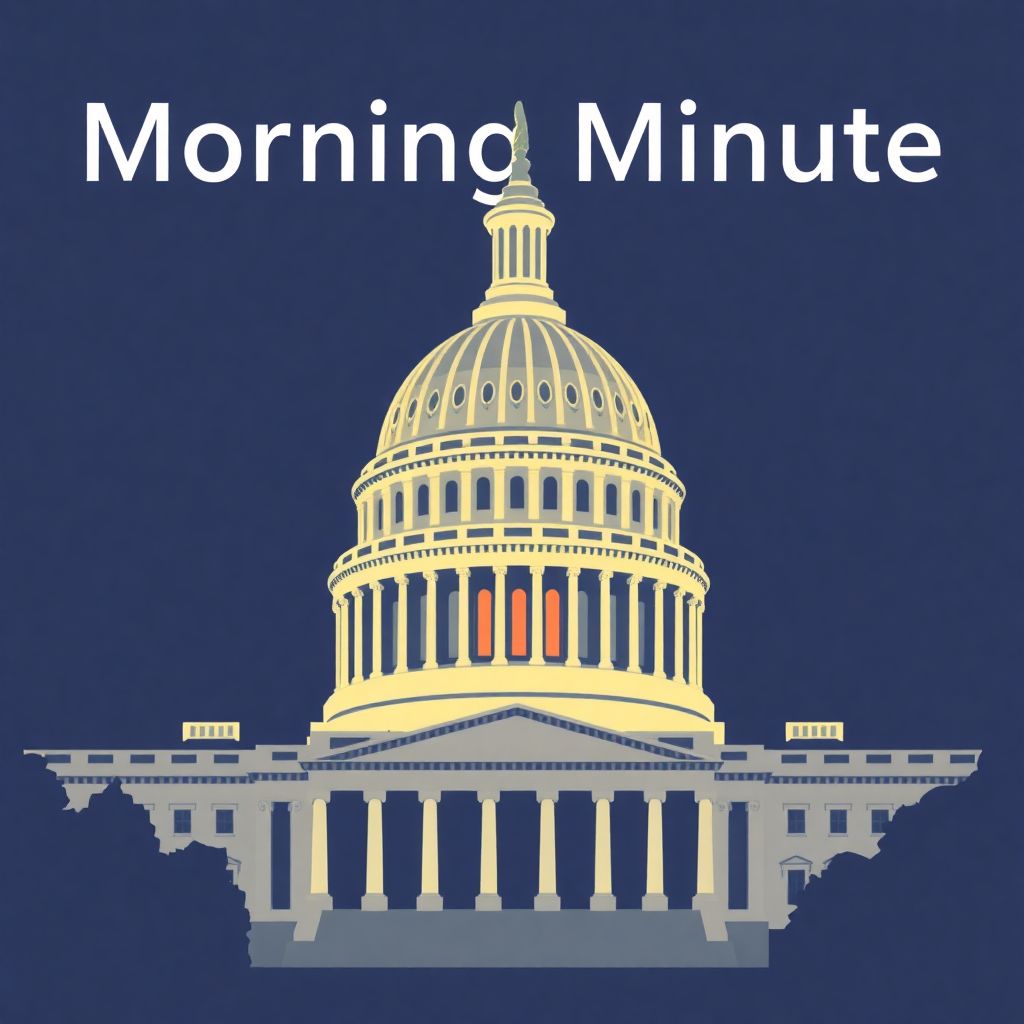Morning Minute: Crypto Becomes Political Battleground in Washington
The political atmosphere in Washington is intensifying, and the cryptocurrency sector has found itself at the center of an increasingly heated dispute between Democrats and Republicans. As digital assets gain prominence in the financial ecosystem, they’re also becoming a flashpoint in broader ideological battles over regulation, innovation, and financial freedom.
Behind closed doors, Democratic lawmakers have reportedly warned crypto industry leaders that Republicans are exploiting their cause for political leverage. This quiet warning reflects growing tensions, with each party now framing crypto policy through sharply contrasting lenses. While Republicans generally position themselves as champions of innovation and free markets, Democrats are expressing concern over financial stability, consumer protection, and the potential for illicit use.
This political tug-of-war has put crypto companies in a precarious position. On one hand, they seek regulatory clarity and support for innovation. On the other, they risk being caught in the crossfire of partisan agendas, with each side accusing the other of bad faith. The result? A dangerously uncertain regulatory landscape that threatens to stifle growth and drive innovation offshore.
The crypto lobby has grown more powerful and organized in recent years, with major firms and industry groups increasing their presence on Capitol Hill. Yet, despite this progress, legislation aimed at establishing a comprehensive regulatory framework for digital assets remains stalled. Lawmakers continue to propose competing bills, with Republicans favoring lighter-touch regulation and Democrats pushing for stricter oversight under agencies like the SEC and CFTC.
The stakes are high. Without clear rules, companies struggle to operate confidently, investors face inconsistent protections, and the U.S. risks falling behind global competitors who are moving more decisively on crypto regulation. Europe, for example, has already implemented its MiCA (Markets in Crypto-Assets) framework, while countries like the UAE and Singapore are actively attracting crypto businesses with favorable policies.
The politicization of crypto is now evident not only in policy debates but also in campaign rhetoric. Some Republican candidates have embraced crypto as part of a broader vision of economic freedom and decentralization, advocating for policies that limit the federal government’s control over financial technology. In contrast, many Democrats are emphasizing the need to rein in what they see as a volatile, speculative market that threatens average consumers.
Industry leaders are increasingly voicing frustration over the lack of bipartisan cooperation. Many argue that the current approach—where crypto is used as a political pawn—undermines the potential of blockchain technology to drive innovation, increase transparency, and expand access to financial services.
The coming election cycles could further polarize the issue. As candidates seek to mobilize their bases, crypto policy may become a litmus test for broader ideological battles about the role of government, the future of finance, and the balance between innovation and regulation.
New Developments and Implications
1. Strategic Lobbying Intensifies
Crypto firms are not sitting idle. Industry associations like the Blockchain Association and the Crypto Council for Innovation are ramping up their lobbying efforts, hiring former regulators and legal experts to help craft policy proposals that can appeal to both sides of the aisle.
2. Investor Sentiment Shifts
Retail and institutional investors alike are growing wary of the lack of regulatory certainty. Market volatility is no longer just about price swings—it’s also about the risk of sudden enforcement actions or adverse legislation that could impact business models overnight.
3. Regulatory Arbitrage Becomes a Reality
As U.S. regulators struggle to agree on crypto’s legal classification—commodity, security, or something else—many companies are expanding operations abroad. Coinbase, Kraken, and other major exchanges have already opened offices in more regulation-friendly jurisdictions.
4. Innovation at Risk
Startups, particularly those building decentralized finance (DeFi) platforms, face hurdles in fundraising and development due to ambiguity around compliance. This regulatory fog is slowing down the pace of innovation and deterring new entrants into the space.
5. Public Perception Evolves
The general public is becoming more aware of the political dimensions of crypto. For some, this adds legitimacy to the space. For others, it reinforces skepticism, especially when headlines focus on scams, hacks, or polarized political messaging.
6. Increased Scrutiny from Financial Regulators
The SEC and CFTC continue to assert overlapping authority, leading to regulatory turf wars. Recent enforcement actions have targeted major crypto platforms, sending a chilling message to market participants about the risks of operating without clear guidance.
7. Potential for Bipartisan Solutions
Despite the polarization, there are signs of hope. Some lawmakers on both sides recognize the need for a stable, innovation-friendly regulatory framework. Initiatives like the Financial Innovation Caucus aim to find middle ground on key issues like stablecoin regulation, tax treatment of digital assets, and consumer protections.
8. Stablecoins in the Spotlight
Stablecoins, especially those pegged to the U.S. dollar, are becoming a central focus in the regulatory debate. While Democrats worry about systemic risk, Republicans see them as a tool for expanding access to the financial system. A stablecoin bill with bipartisan support could be the first major piece of crypto legislation to pass.
9. Digital Dollar Debate Adds Fuel
Discussions around a central bank digital currency (CBDC), or digital dollar, are further complicating the conversation. Republicans have voiced strong opposition to a government-backed digital currency, citing privacy concerns, while Democrats see potential efficiency and inclusion benefits.
10. Implications for the 2024 Election
Given the growing political weight of crypto, it’s likely to become a campaign issue in 2024. Candidates’ stances on digital assets could influence tech-savvy voters and donors, adding a new dimension to traditional economic debates.
As crypto continues to weave itself into the fabric of modern finance, its intersection with politics is inevitable. The challenge now is ensuring that this powerful technology is guided by thoughtful, transparent, and forward-looking policy—not reduced to a pawn in America’s increasingly divided political chessboard.

